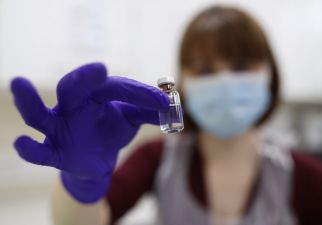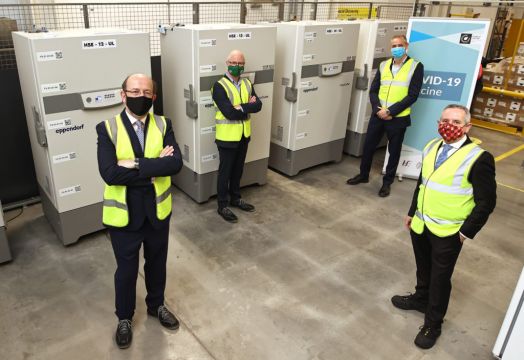Ireland may be able to provide a Covid-19 vaccine to everyone in the country who wants one by August in a "fairly positive scenario", a senior official tasked with a vaccine roll-out said on Tuesday.
While it is impossible to be precise, "one fairly positive scenario that we'd be looking at for the month of August would be over two million doses of vaccine arriving", the chair of the Government's Covid-19 vaccine task force, Professor Brian MacCraith, told RTÉ radio.
"If all things come to pass that are in that model in terms of expected approval dates and expected delivery schedules, one would be looking at that stage of being very close or at the point of closing out the vaccination of as much of the population of Ireland that want to receive vaccines," he said.
Prof MacCraith said this was based on modelling that excluded people under the age of 18 and pregnant women, who are not allowed to take the Pfizer/BioNTech vaccine, and the fact that a minority of the population are likely to refuse vaccination.
Ireland administered its first Covid-19 vaccines on Tuesday at four hospitals across the country.
Held back
On Tuesday, Prof MacCraith also said that quantities of the vaccine “will never be held back” and will be administered as quickly as they become available.
He explained the reason half of the doses which arrived in the country on St Stephen's Day had been held back was to ensure there were sufficient quantities to administer the second dose necessary for the Pfizer/BioNTech vaccine.
"Because the second dose is so important, we are not leaving anything to chance," Prof MacCraith said.
This was being done as a precaution and once supply chains, manufacturing schedules and delivery dates have been confirmed “we will never hold back the vaccine” he said. It will be used as quickly as it becomes available.
There have been some difficulties around the supply of the vaccine in other countries which was the reason for the caution, he said.
A further supply of 40,000 doses are expected to arrive in Ireland on Tuesday, with the same quantity scheduled to arrive every week for the month of January and into February.

Prof MacCraith said once the AstraZeneca vaccine becomes available it will be “a game changer” because of the ease of use. “That will change things quite quickly.”
All of the task force’s modelling was based on approval dates, manufacturing schedules and delivery schedules, added Prof MacCraith.
By August, he expected anyone who wanted the vaccine would have it. A recent poll had indicated that over 70 per cent of the population would be prepared to take the vaccine, with only one in ten saying that they would not.
A communications campaign to provide reassurance and address concerns would play an important role in the coming months, he said.







